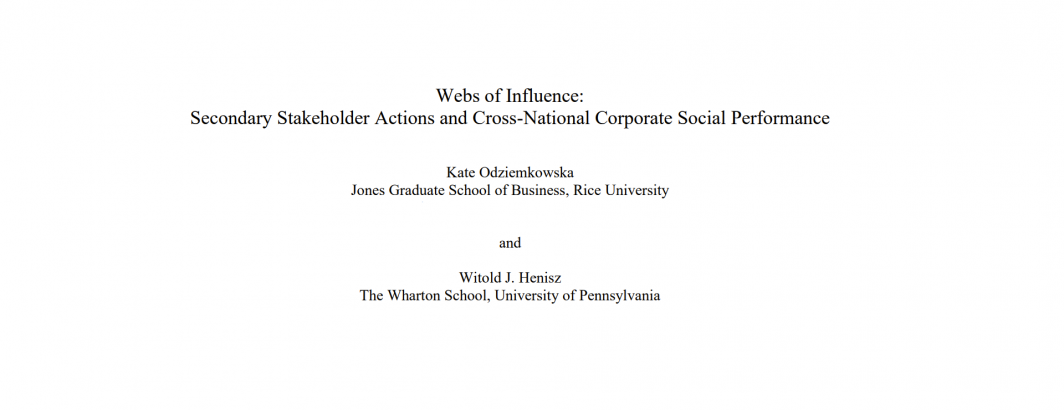
We analyze the relationship between the actions and interactions of secondary stakeholders with an interest in corporate social performance (CSP) and variation in firm-level CSP across countries. Our work represents a significant theoretical shift in research exploring comparative CSP, which, to date, has focused on cross-national variation in institutions. We propose that stakeholders can also drive cross-country heterogeneity in CSP by influencing the salience of the issues for which they advocate. Stakeholders raise salience of CSP issues through their interactions with important sociopolitical actors within a country, signaling their collective ability to change expectations on CSP. CSP issue salience is also heightened where heterogeneous stakeholder groups advocate for CSP issues, signaling that issues have garnered widespread acceptance or legitimacy. Managers are also more attuned to the urgency of issues through the direct actions that stakeholders take against firms in the country. We also argue and find that these effects are moderated by interstakeholder interactions, which signal the degree of consensus among stakeholders on issues and their ability to mobilize repeatedly against firms. We draw on a novel data set of 250 million media-reported events to identify secondary stakeholders with interests in the environmental and social issues that constitute CSP, their direct actions against firms, and their interactions with important sociopolitical actors and each other. We show empirically that variation in secondary stakeholder actions and interactions between countries, and within countries over time, is associated with differences in firm-level CSP among a sample of 2,852 firms spanning 36 countries from 2004 to 2013.